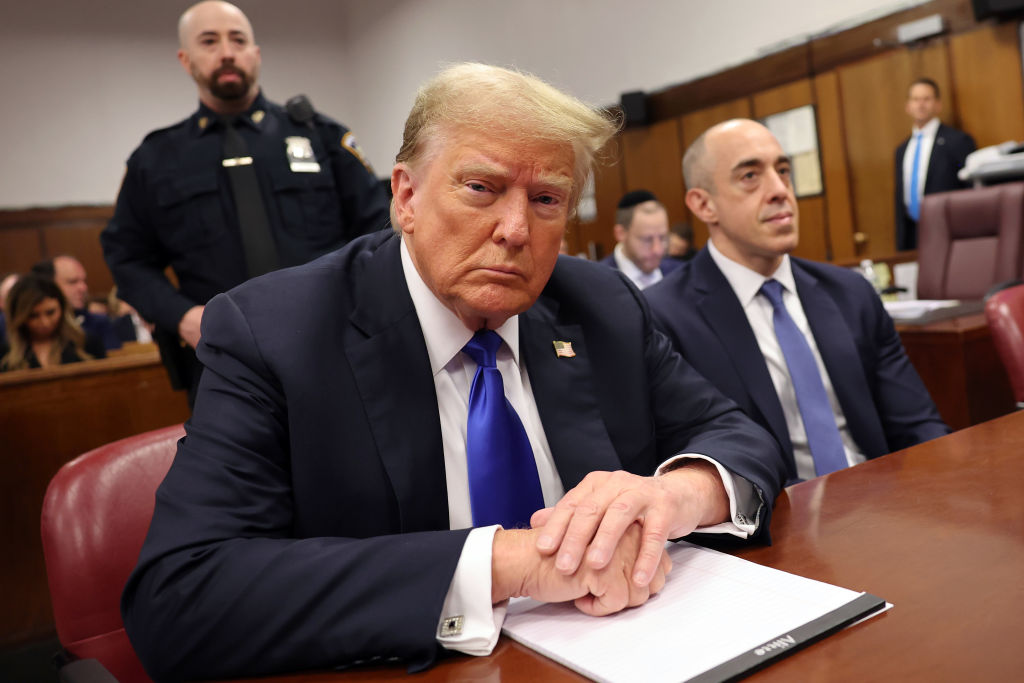The cure for what ails America.
Walz Versus the Electoral College

As governor, he signed legislation to manipulate presidential elections.
The many extreme policies supported by Minnesota Governor Tim Walz, Kamala Harris’s running mate, are well known. From COVID snitch lines to sex changes for children, Walz has used his power to foist far-left positions on the citizens of his state. Another, less remarked upon, measure he championed was subverting the Constitution in order to manipulate elections.
On May 24, 2023, Walz signed a 300-page omnibus bill full of lefty policies that was packaged together to stifle debate and prevent opposition from more moderate Democrats. The bill expanded affirmative action, increased regulation of political speech, instituted sensitivity training throughout the state government, and even granted specific far-left organizations (but no conservative groups) a special role in developing election reform recommendations. Even worse, however, it added Minnesota to the National Popular Vote interstate compact.
The New York Times (which supports it) has called the NPV compact “an end run on the Constitution” and “a plan for states to skirt the Electoral College.” It was developed by John Koza, a Stanford University professor whose previous claim to fame—and fortune—was inventing the scratch ticket lottery system.
Koza was frustrated by Al Gore’s loss in the 2000 presidential race. He picked up an idea floated by three liberal law professors: What if states could simply ignore their own voters and give away their electoral votes based on the national popular vote? If enough states did that, the Electoral College might be forced to rubber stamp the popular vote result. Koza turned this idea into state legislation and began a national campaign to introduce this concept to state lawmakers.
Far-left activists despise the Electoral College because it works—it forces Democrats to pay attention to voters outside of big cities. The state-by-state system the American Founders developed limits how much power any one region of the country can have over the rest of us. That creates more balance in our national politics: political parties and presidential campaigns need a broad base of support to have a shot at winning the White House. This is a powerful force for good in American politics.
By contrast, Koza’s NPV compact would manipulate the Electoral College by deforming its process and destroying its purpose. Minnesota is one of 17 blue states that have passed NPV legislation. The compact only takes effect, however, if it is passed by enough states that together have at least 270 electoral votes—enough to control the outcome of presidential elections. Right now, the total stands at 209.
The Constitution gives each state a number of presidential electors (who cast the state’s electoral votes for president and vice president) equal to its representation in the U.S. House and Senate. And it lets state legislatures determine how presidential electors are chosen. It is this power that Koza believes he can use to pervert presidential elections.
From the early years of our republic, state legislatures have used their power to hold elections for voters to choose their state’s presidential electors. This has been done by districts or, more commonly, statewide. Today, Maine and Nebraska elect one presidential elector from each congressional district and the remaining two statewide. Every other state chooses its presidential electors together in a statewide election. Either of these systems is in keeping with the purpose of the Electoral College, because it represents the people of a particular state in the presidential election process.
Should Koza’s compact take effect, it would create a bizarre, pseudo national election. Consider how it would work in Minnesota. After election day, the Minnesota secretary of state would collect vote totals from every other state, add them up, and declare a national winner—but only for Minnesota. Each state in the compact would do the same. Yet all states have different election laws which lead to various reports, on different schedules, of vote “totals” that change over time.
In the last presidential election, for example, New York’s various reports show a discrepancy of nearly 30,000 votes. That’s nothing compared to 2012, when the Empire State had more than 400,000 ballots left to count when it certified its presidential election results. None of this could have changed the outcome in deep blue New York—but with NPV, it could change the outcome in other states.
Even worse, NPV state officials might cherry pick which results to use. Highly partisan states could selectively recount ballots or engage in other dubious practices to affect the totals used by NPV state officials. One of the law professors who came up with NPV even suggested that California could lower its voting age to further inflate its numbers in the national total. Or what if the Minnesota secretary of state decided not to accept results from, say, Texas?
Koza’s NPV compact has no provisions for election contests, recounts, or any other kind of dispute. All that, he says, would be left to state and federal judges to sort out. Yet the most pressing legal question about NPV is whether it’s legal at all. Can state politicians really use a constitutional power to destroy the very purpose of that power? Can they manipulate the Constitution to do something rejected by everyone who wrote and ratified it?
Tim Walz’s support for NPV shows his disregard for the serious legal and practical flaws in Koza’s compact. It reveals yet another area where Walz reflexively sides with the far-left in its rush to remake our country. The Electoral College is part of the Constitution, and the means to change it is set forth in the document itself. Yet, rather than have an honest conversation about amending the Constitution, Walz supports those looking for an end run around it.
The American Mind presents a range of perspectives. Views are writers’ own and do not necessarily represent those of The Claremont Institute.
The American Mind is a publication of the Claremont Institute, a non-profit 501(c)(3) organization, dedicated to restoring the principles of the American Founding to their rightful, preeminent authority in our national life. Interested in supporting our work? Gifts to the Claremont Institute are tax-deductible.
A former student of Michael Uhlmann pays tribute to his late friend and mentor.
The Founders' debate over Thanksgiving.
Can it recover the separation of powers?
Hell is full of laws and due process is strictly observed.
Could the end of the Wickard precedent be near?






